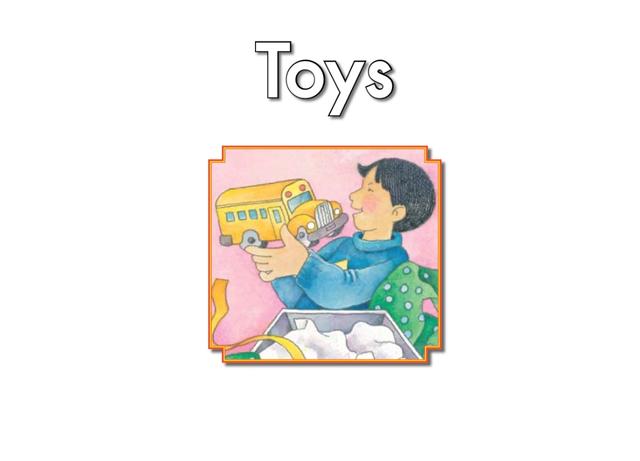和动物有关的词语和句子(和动物有关的习语)
Well, hey there, I'm Emma from mmmEnglish! ,下面我们就来说一说关于和动物有关的词语和句子?我们一起去了解并探讨一下这个问题吧!

和动物有关的词语和句子
Well, hey there, I'm Emma from mmmEnglish!
Now it's been a while since I've made you an idioms lesson and since so many of you have been asking for help with idioms lately, I thought we'd better get to it!
大家好啊,我是Emma,欢迎来到Emma的美味英语!
距离上次给大家准备的习语课程已经过了很长一段时间啦,很多人最近都在寻求关于习语方面的一些帮助,我觉得我们最好是来做一节吧!
. . . . . . There are just so many English idioms.
英文中有很多习语。你还记得它们是什么吗?
它们是一些短语,而它们的意思和短语中每个单词单独的意思并不相同。
Do you remember what they are?
They're phrases, whose meaning is different to the individual meaning of each of the words in the phrase. They're a really tricky part of learning English.
它们是学英语过程中非常困难的一部分。
而且有很多很多的习语!
There's lots of them, thousands!
And some idioms are more commonly used in some countries but not in others which is a little bit frustrating when you're trying to learn them, right?
有些习语在某些国家特别常用,但是在其他国家则寥寥,而这会让正在学习这些习语的你感到有点点沮丧,是吧?
哪些是大家都会用的呢?
Which ones are the ones that everyone uses?
There are some idioms that my American friends use that I'm like, 'What? ' and ones that I use that go straight over their head as well.
我的美国朋友有一些常用的习语,而我觉得这都是些什么鬼啊,而我用的一些习语他们也完全摸不着头脑。
这里有一个习语!
That's an idiom right there! Native English speakers use them a lot.
英语母语者使用非常频繁。它们动不动就会在英语口语中蹦出来,但是很难完全理解它们,也很难停止对话的进行,询问它们到底是什么意思。
They pop up in spoken English when it's really difficult to, you know, fully understand them or stop the conversation and ask about the meaning of how it's used.
You're just sort of left wondering 'Why is he talking about an elephant? '
你在一旁想“他为什么要说大象呢?”
关于习语的一个小提示就是,英语当中有一些习语可能和你的母语当中的习语很像,比如说“乌鸦爪纹”。
One little hint with idioms is that there are probably some English idioms that are similar to the ones that you have in your own language like 'crows feet'.
Crows feet are the wrinkles that people get here caused by a lifetime of laughing and smiles or maybe too much squinting in the sun.
“乌鸦爪纹”是因为经常笑或者是在太阳下眯眼睛长出的皱纹。但是在英文当中,它们被称为“乌鸦爪纹”。
But in English they're called crows feet.
But these same wrinkles might have a similar idiom as their name in your language.
So if you do have some sort of idiom for these wrinkles here, I want you to add it to the comments right now because I've heard a few of them before but I'm curious to see just how many we can collect.
但是这些皱纹可能在你们的语言中拥有相似的习语表达。
所以如果你的语言中确实有一些关于这些皱纹的习语,希望大家可以现在写在下方的评论处,因为我之前听说过一些,但是我很好奇,想要看看到底能够收集多少。
它们在英文中被称为“乌鸦爪纹”。
They're 'crows feet' in English. They kind of look like a crows foot.
它们看起来有点像乌鸦爪。
你可能已经看过了我的其他习语课程,我其实出了好几个了,你可以在我的习语列表中找到它们。
Now you may have seen some of my other idioms lessons,
I've made quite a few but you can find all of them right here on my idioms playlist. I'll also link to it at the end of this lesson just in case you want to keep practising a little bit more with me later on.
我也在本节课程的结尾放上了链接,以防大家想要继续进行练习。
还有商业习语、天气习语、食物习语、假日习语和身体习语。
But there's business idioms, weather idioms, food idioms, holiday idioms, body idioms.
They're all there!
都在这里,任君选择!即便是你可能觉得习语会让对话变得复杂难懂,它们其实真的特别有意思,而且是表达自我的非常有创造力的方式。
Now even though you probably feel like idioms make a conversation confusing, they're also really fun and they're a great creative way to express yourself.
They really show off your English talents like in a speaking exam for IELTS or TOEFL, using an idiom correctly is quite impressive.
它们可以展示你的英文能力,比如说在像雅思或者托福这种口语考试中,正确使用习语能给人留下非常深刻的印象。
在我们正式开始之前,记住一定要订阅我的频道哦,点击下面的红色按钮就可以,这样你就可以持续了解最近的状况!
And before we get started, make sure you subscribe to the channel just by clicking that red button down there so that you can keep up-to-date with what's happening!
So we're going to learn a few today.
我们今天要学习一些习语。我们会学一些常见的动物习语,从这个开始。
We're going to go over some common animal idioms, starting with this one. 'It's raining cats and dogs'
“瓢泼大雨”“瓢泼大雨”的意思并不是猫猫狗狗从天上掉下来。
Now 'it's raining cats and dogs' doesn't mean that cats and dogs are falling out of the sky. It means that it's raining and it doesn't just mean raining, it means raining really hard.
It's heavy rain.
它的意思是天正在下雨,而且不仅仅是下雨,而且是下的非常非常大。是大暴雨。我觉得我们得取消骑自行车了,外面下起了瓢泼大雨。
I think we'll have to cancel the bike ride, it's raining cats and dogs out there! It's really rainy!
是真的下得很大!
讲真,我一般不怎么使用这个习语,但是我经常在看书的时候会碰见它。
Now to be totally honest, I don't really use this idiom that much but I come across it all the time in books. So I wanted to include it here for you.
所以我想把它给包括进来。
如果雨真的下的很大的话,我通常会说“大雨倾盆”,但是如果说“瓢泼大雨”的话,可能最好还是待在室内。
Usually I would say "It's bucketing down" if it's raining really hard but if it's raining cats and dogs, it's probably best to stay inside.
Now speaking of cats, who let the cat out of the bag?
说到猫咪呢,谁泄露了秘密呢?这个习语说的是揭露一个秘密。
This idiom is used to talk about revealing a secret.
Now just imagine your sister told you that she was flying home to surprise your mum for her birthday.
想象一下你的姐姐告诉你她要飞回家给你的母亲一个生日惊喜。这是个秘密,对吧?
It's a secret, right? You can't tell your mum because it wouldn't be a surprise.
你不能告诉你的妈妈,因为这就不是惊喜了。
如果你告诉了她的话,你就泄露秘密了。
If you did, you would let the cat out of the bag. Your sister might say "Please don't tell Dad. He'll definitely let the cat out of the bag."
你的姐姐可能说“不要告诉爸爸。他肯定会泄露秘密的。
”这个秘密会被破坏的,因为爸爸不能保守秘密,这个派对就再也成不了惊喜了,对吧?
The secret will be ruined because dad can't keep a secret and the party wouldn't be a surprise anymore, would it?
You can also ask the question: Who let the cat out of the bag?
Who told the secret?
你可以问这个问题:谁说出了这个秘密?
或者是你可以道歉:我可能已经透露了这个惊喜。
Or you can apologise, you can say: Oops.
I may have just let the cat out of the bag.
I may have spoiled the surprise.
Now I want to ask you, have you got an addiction to something?
现在我想问一下大家,你有对什么东西上瘾吗?
我呢,是咖啡。我对咖啡上瘾。
For me, it's coffee. I've got a coffee addiction. I can't possibly give it up!
我根本不能放弃喝咖啡!
好的,如果我能完全放弃的话,我就再也不会喝了。
Well, the only way that I could do it is if I just went cold turkey.
Now this one doesn't make much sense.
但是这个句子并没有什么意义。想象一只非常非常冷的火鸡并没有什么用。
Picturing a turkey who's really, really cold won't help you at all.
But if you go cold turkey it means that you stop doing something completely, a hundred per cent.
但是如果你“完全放弃某件事的话”,它的意思是彻彻底底、百分之百地不再做某件事情。
我们通常会用它来描述戒掉成瘾的情况,比如说吸烟、喝咖啡、酗酒,甚至是社交媒体成瘾。
And we usually use it to talk about quitting addictions like smoking, coffee, drinking, even social media addictions.
We all know someone who's addicted to their phone, right?
我们都知道很多人手机成瘾,对吧?或者可能就是你!
可能你就对手机成瘾。可能你根本放不下手机。
Or maybe you are! Maybe you're addicted to your phone.
Maybe you can't put it down. If you are, maybe you should think about going cold turkey for a while.
如果你是的话,可能你应该想想暂时戒掉吧。
所以如果你需要卸载脸书,卸载推特,卸载ins,Whatsapp,一切的一切,所有的社交媒体!
So you'd delete Facebook, delete Twitter, delete Instagram, Whatsapp, everything, all forms of social media! It has to be everything otherwise it's not cold turkey.
比如得是所有的一切,否则就不算是完全戒掉。
“冷火鸡”的意思是百分之百。
'Cold turkey' means a hundred per cent. Absolutely no.
完全没有。
现在你可以使用后面加“百分之百”的两个动词。
Now you can use two verbs with cold turkey.
You can either say "go cold turkey" or you can "quit cold turkey" though that's a little more American, American English.
你既可以说“完全戒掉”,也可以说“完全放弃”,不过这个更加美式一点,美式英语。所以我很好奇,你之前是否完全放弃过某件事情,完全不再做了?
So I'm curious, have you ever quit anything cold turkey before and completely stopped doing it?
Tell me in the comments.
在评论中告诉我吧。
通常来说,完全放弃并不容易。
Usually, it's not so easy to go cold turkey. What do you think?
你觉得呢?好的,下一个习语,我想让大家想一个你熟悉的人,他非常善良,非常温柔。
Okay for the next idiom I want you to think of someone that you know who's very kind and gentle.
Well, you can describe them by saying they wouldn't hurt a fly.
好的,你可以用“心地善良”来描述他们。
苍蝇和蚊子非常讨厌,对吧?
Flies and mosquitoes are pretty annoying, aren't they?
Especially here in Australia!
尤其是在澳大利亚!所以那些不会伤害苍蝇的人肯定非常有耐心,也很善良,对吧?
So someone who wouldn't hurt a fly must be so patient and kind, right? So this is a really positive, affectionate idiom and it's used to describe a person.
所以这是个非常积极有爱心的习语,是用来描述一个人的。
你还可以使用这个表达来消除对某个人的担忧。
So you can also use this expression to reassure someone.
If they're worried about trusting someone, you might say to them "Don't worry, Steve wouldn't even hurt a fly! He's the nicest guy that you'll ever meet!"
如果他们不太相信某个人的话,你可以和他们说“别担心,史蒂夫特别特别善良!
他会是你们见过的最最好的人!”好的,我猜该到时间讨论“房间里的大象”了。
All right, I think it's really time we talk about the elephant in the room.
Have you ever heard of this idiom?
你听说过这个习语吗?“房间里的大象”指的是大家都不愿意讨论的事情。
The elephant in the room is the thing that nobody wants to talk about.
So it's quite specific, the way you use this idiom.
所以你使用这个习语的方式非常特殊。
是用在当人们在正常说话,但是他们都很刻意地不讨论某个特定的话题,但是这个话题非常重要。
就像一个巨大的大象待在房间中央,非常非常明显,不看它根本不可能,对吧?
It's when people are talking normally but they're all deliberately not talking about a particular issue but this issue is a big one.
It's like a big, huge elephant sitting in the middle of the room that is really obvious and it's impossible not to look at and you can see it, right?
But nobody's talking about it.
但是没有人在谈论它。这个话题非常非常明显,但是所有人都忽视它,对吧?
或者是他们是故意避开这个话题,可能是因为这个话题谈起来让人不太自在,或者是这种情况很困难。
The issue is something really obvious but everyone's ignoring it, right?
Or they're trying to avoid it probably because it's an uncomfortable topic or a difficult situation. We really need to deal with the elephant in the room. None of us have been paid in over a month!
我们真的要直面问题了,我们都一个多月没发工资了!
没有人想要说这件事,对吧?
No one wants to talk about this, right?
Talking about money can be a little bit awkward, especially with your boss.
谈钱可能有点点尴尬,尤其是和你的老板谈钱。
这是个很不好的情境!
This is a bad situation!
Why is no one in the room talking about it?
为什么房间里没有人谈论它?
可能每个人都谈论过它了。
It's definitely what everyone's been thinking about.
Why haven't I been paid?
为什么我还没拿到薪水?
这个问题很明显啊。
It's the elephant in the room.
We need to deal with this big issue, right?
我们需要解决这个重要议题,对吧?
这是我最喜欢的习语之一。
This one is one of my favourite idioms. It's one that I use a lot.
我也经常使用这个习语。当你“肚子里有蝴蝶”的时候,就是你感觉紧张的时候。
When you have butterflies in your stomach, it's when you feel kind of nervous.
Do you know this feeling?
你知道这种感觉吗?
这是你上台在一百个人演讲,展示你的研究之前的那种感觉。
It's that feeling in your stomach right before you walk on stage to speak in front of a hundred people and present your research.
It feels like you literally have butterflies flying around inside your belly, right?
感觉真的肚子里有蝴蝶在到处飞,对吧?
想象一下会让你紧张的事情,你的肚子开始感觉有点点怪怪的。
Now think of anything that makes you feel so nervous that your tummy starts to feel a little funny.
This can be described as butterflies in your stomach, right?
这可以用“心里七上八下”来形容,对吧?
你可以用它来描述积极的紧张感或者是消极的紧张感。
You can use it to describe good nervous feelings or bad nervous feelings.
I'm so scared to speak on stage. I've got butterflies in my stomach!
我好害怕上台啊。感觉心里七上八下的。你上次紧张是什么时候了?
When was the last time you had butterflies in your stomach?
Do you know this feeling?
你知道这种感觉吗?告诉我你对什么感到紧张,以及你什么时候有这个感觉的吧。
Tell me about what makes you nervous and when you had this feeling.
For me, if I see police lights in the rear-vision mirror in my car when I'm driving, I instantly get butterflies in my belly even if I've done nothing wrong!
对我而言呢,如果我开车的时候,在车的后视镜里看到了警灯的话,我立刻就会感觉非常紧张,即便我什么都没有做错!
你可以说“胃”或者“肚子”都可以。
You can say 'stomach' or 'belly' here. 'Belly' is just a little more informal, it's an informal way to say 'stomach'.
“肚子”有一点点不太正式,这是“胃”的非正式表达方式。
你可能也听到有人说“我有蝴蝶”,他们说的也是同一个习语,除非那个人真的有一罐子蝴蝶,装在自己的兜里的话,那他们可能真的在说它的字面意义,但是那是不可能的,对吧?
Now you might also hear people just say "I've got butterflies" and they're talking about this same idiom unless that person has a jar of butterflies with them in their pocket, then they might be saying it and literally mean it but that's unlikely, right?
So here's the next idiom: 'a fish out of water'.
Now if you see someone who is uncomfortable in a specific situation like your grandma, if she walked into a nightclub.
这是下一个习语:“离开水的鱼”。
如果你看到某个人在某个特定的情况下感觉不舒服的话,比如说你的祖母,如果她走进夜总会的话。他们会觉得非常不自然。
Then they look like a fish out of water.
She would feel like a fish out of water, really uncomfortable, right?
她也会感觉非常不自在,非常不舒服,对吧?她在夜总会里面会觉得非常的尴尬,除非你的奶奶非常非常酷。
She would feel completely awkward in a nightclub unless you've got a super cool granny.
I was really excited on the first day of my internship, but when I arrived I felt like a fish out of water.
我对实习第一天超级期待,但是当我到了的时候感觉特别不自在。
或者可能当你受邀参加派对,但是每个人都是英语母语者,你可能感觉有点不太自在。
Or maybe when you get invited to a party but everyone is a native English speaker, you might feel a little like a fish out of water there.
Okay, we've got time for one more idiom.
好的,我们有时间再多学习一个习语。“搞得一团糟”
'to open a can of worms' Imagine a can full of worms.
想象满满一整罐的虫子。全都是长长的、蠕动的、扭曲的虫子,在一起动来动去。
It's full of long, wriggling, squirming worms that are all twisted together.
So when you open that can of worms, you're going to have a big mess.
当你打开那个罐子的时候,你的麻烦就来了。它们会跑的到处都是!
They're going to go everywhere! It's probably going to be really difficult to clean up and try and catch them all, right?
You'll have a lot more problems than when you started.
可能非常难以清理,也很难把它们全都抓住,对吧?
你可能比你开始的时候遇到更多更多的问题。当它们在罐子里的时候可能会更加容易一点,但是如果你打开的话,就会出现大问题。
It's easier when they're in the can but if you open it there's going to be problems.
Or "Let's not talk about raising prices, we just going to open a can of worms."
或者是“我们先不要讨论涨价的事情了吧,会把事情搞得一团糟。
”如果你不想把情况搞得这么复杂的话,就不要打开那罐虫子,对吧?很简单!
So if you don't want to create a tricky situation, then don't open the can of worms, right?
It's simple! So those are some of the common animal idioms that I tend to use quite often but there are more.
以上就是常见的动物习语了,我经常使用它们,但是还有更多的习语。你知道其他的英语习语吗?
Do you know any other ones in English?
Or can you share the meaning of any animal idioms in your own language?
或者是你能分享一些你母语中关于动物的习语吗?
可能在英语中有一些相似的习语,我们可以在评论中进行讨论。
Perhaps there are some similar ones in English and we can chat about them in the comments.
And make sure you try and use some of the new idioms that you've learnt in this lesson below in the comments.
记住要试一下哦,在评论中使用一下你在本节课程中学习的一些新习语。
I'll try and give you some feedback and help you to make sure you're using them correctly.
我会试着给你一些反馈,帮助大家确保你们的使用方式是正确的。
Thanks for joining me here again at the mmmEnglish channel.
再次感谢大家加入我的美味英语课程。
,免责声明:本文仅代表文章作者的个人观点,与本站无关。其原创性、真实性以及文中陈述文字和内容未经本站证实,对本文以及其中全部或者部分内容文字的真实性、完整性和原创性本站不作任何保证或承诺,请读者仅作参考,并自行核实相关内容。文章投诉邮箱:anhduc.ph@yahoo.com






